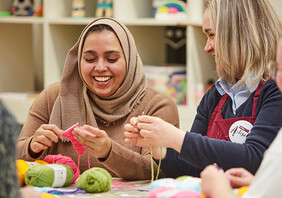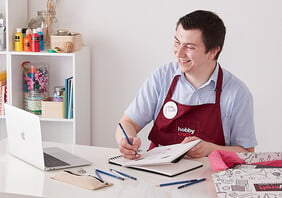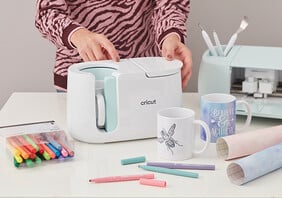The Best Knitting Needles for Every Project: A Crafter’s Guide
Knitting needles are more than just tools—they’re extensions of your hands and a key part of your creative process.
Choosing the right pair can make the difference between a frustrating tangle of yarn and the smooth rhythm of stitches flowing off your needles.
Whether you’re a seasoned knitter or picking up your first pair, understanding the types, materials, and features of knitting needles will help you find your perfect match.
Let’s unravel the details.
You will need
The Best Knitting Needles for Every Project: A Crafter’s Guide
First things first - knitting needles come in a variety of shapes, each suited to different types of projects. Here’s what you need to know:
Straight Needles: These are the traditional, straight, single-pointed needles that most beginners start with. Ideal for flat knitting projects like scarves, blankets, and panels, they’re easy to handle but can be cumbersome for larger pieces.
Circular Needles: Circular needles feature two short needle tips connected by a flexible cable. They’re versatile, allowing you to knit in the round for projects like jumpers and hats, or flat for larger pieces like blankets. The weight of the project is distributed on the cable, making them more comfortable for long sessions.
Double-Pointed Needles (DPNs): DPNs have points on both ends and are typically used for knitting small, circular items like socks and sleeves. They come in sets of four or five and require a bit of practice but are perfect for intricate work.
The material of your knitting needles can significantly affect your knitting experience. Different materials offer unique textures, weight, and grip:
Wooden Needles: Warm and lightweight, wooden needles are perfect for beginners because they have a slightly grippy surface that helps keep stitches from slipping. Bamboo is a popular choice, offering flexibility and durability. However, hardwood needles like rosewood or birch provide a luxurious feel and are ideal for experienced knitters.
Metal Needles: Metal needles, usually made of aluminium or stainless steel, are smooth and allow stitches to glide effortlessly. They’re great for fast knitters or projects with slippery yarns like silk or cotton. The downside? They can be a bit noisy and feel cold in hand.
Plastic Needles: Lightweight and affordable, plastic needles are a good option for beginners or those looking for a budget-friendly choice. They’re also available in larger sizes for chunky yarns. However, they’re not as durable as metal or wood.
Carbon Fibre Needles: For those who want a balance of lightweight feel and durability, carbon fibre needles are an excellent choice. They combine a smooth surface with strength, making them ideal for fine or lace knitting.
Knitting needle sizes are measured in millimetres in the UK and determine the thickness of the needles. The size you need depends on your yarn and the pattern requirements:
Thicker Needles (8mm and above): Ideal for chunky yarns and quick projects like oversized scarves and blankets. They create large, open stitches and a cosy texture.
Mid-Range Needles (4mm to 7mm): These sizes are versatile and work well for most standard yarns and projects, from garments to accessories.
Finer Needles (2mm to 3.75mm): Perfect for delicate projects like socks, lace, or intricate patterns. They require precision but produce beautifully detailed work. Needle length also plays a role, especially with straight needles.
Longer needles (35cm or more) are best for large projects, while shorter ones (25cm) are easier to handle for smaller pieces.
If you love working with circular needles, you’ll eventually face the choice between fixed and interchangeable sets:
Fixed Circular Needles: These come with a set length and are ready to use straight out of the package. They’re convenient for specific projects but can clutter your stash if you need multiple lengths.
Interchangeable Needle Sets: These sets include multiple needle tips and cables of various lengths, allowing you to mix and match as needed. They’re a bit of an investment upfront but can save money and space in the long run.
For those who spend hours knitting, comfort is key. Look for ergonomic features like:
Comfort Grip Handles: Some needles come with cushioned or specially shaped handles to reduce hand fatigue.
Lightweight Materials: Bamboo and carbon fibre needles are lighter, making them easier on your hands during long sessions.
Rounded Tips: Needles with rounded or blunted tips can reduce strain on your fingers and help prevent splitting yarn.
Ultimately, the best knitting needles are the ones that feel right in your hands and suit your projects. You might prefer smooth, speedy metal needles for a silky yarn but switch to bamboo needles for a complex pattern that needs a bit more control.
For those who knit regularly, having a range of needle types and sizes is invaluable. A good set of interchangeable circular needles, combined with a few trusty DPNs and straight needles, will cover most projects.
Knitting is as much about the process as it is about the finished product, and the right needles can make your time crafting even more enjoyable. Whether you’re knitting a cosy jumper, a delicate lace shawl, or your very first scarf, take the time to find needles that suit both your hands and your style.
Experiment with different materials, sizes, and shapes to discover what works best for you. After all, knitting is meant to be a joy—so find the tools that help you create with ease and comfort, stitch by stitch.






